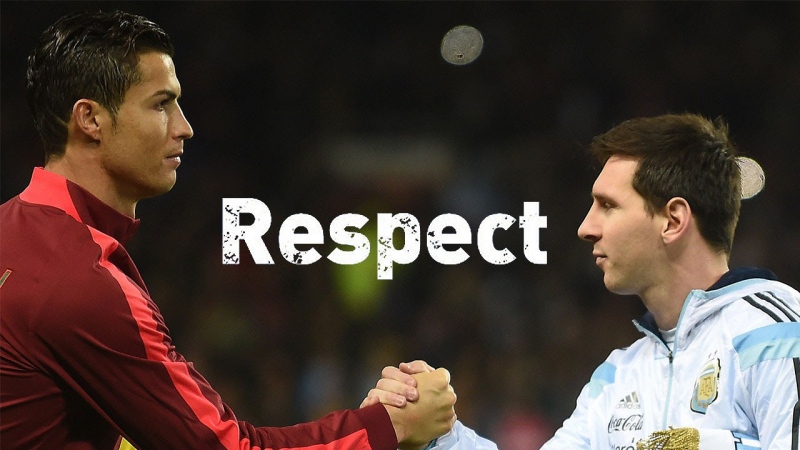Core values of a Soccer Team

A Soccer Team’s Values
There is much that goes into making a soccer team successful. Like other forms of group sport, getting all of its parts to work in unison for a common purpose requires some well-defined, realistic set of driving principles. Though individual characters and temperaments differ, everyone who is part of the team should understand those principles and work daily towards abiding by them. Most soccer teams craft their values to meet two expectations, namely to build a team capable of winning games and competitions, and to ensure sustainable player development. In some ways, therefore, the values that make soccer teams successful or worth playing for, are universal. We take a look at these below.
Discipline
Perhaps, one of the words that immediately come to mind when you think of the sport of soccer is discipline. An organized soccer team functions by a set of rules. There are codes of conduct around times to report for practice, what to wear and how to address team coaches. Other aspects of team discipline require players to follow the prescribed diet plan and to avoid eating foods that could adversely affect performance as well as to maintain a conscious social life. A well-run soccer team allows for much flexibility and gives players room to be creative, but not at the expense of boosting key performance indicators that support player development.
Respect
To be respectful in a soccer team is not to be timid or inferior. Players must believe in their abilities and should speak up firmly for themselves. Respect is simply treating everyone as part of the broad chain that makes soccer the beautiful game that it can be. Soccer teams instill in their players the value of ‘honoring the game’ by respecting opponents, officials, teammates and, of course, respect of one’s self. Opponents should be respected because without them, there is no competition and therefore no merit in playing soccer as a sport. Tempers could flare during games but it is the duty of the team leader, the captain, to step in and ensure order. In same way, officials must be respected; doing otherwise could attract long-term punishments for players and, by extension, the team. The need to respect teammates is more obvious as it would simply be impracticable to have success as a team without it. Self respect is to know why you are in the team and be true to those aims.
Work Ethic
If you are part of a soccer team with a coaching hierarchy, be ready to work. Good coaches are there to make players put forth their best effort, leaving no room for mediocracy. Players are placed on an equal level, where everyone is considered as important as the other. Each has to prove himself by putting in the hard work. As it is usually said, hardwork beats talent when talent doesn’t work hard. From academy to pro, work ethic does pay.
Communication
Despite being a physical sport, soccer is really a game of intelligence. Players have to make instant decisions several times during a game and because no one player can win a game alone, the decision-making process is done in conjunction with teammates. This is why communication is so important. Teammates who are not able to communicate effectively will not be able to play effectively. This aspect of soccer in particular is most experienced when playing in a professional team of multilingual players, where there is a language barrier that has to be overcome. Communication is also important for coaches; they must find the right mix of verbal and non-verbal cues for passing ideas to their players.
Sacrifice
Selfish players do not last long on a soccer team. Players will often be resentful of a teammate who seems to play only for himself. Before every individual honor that exists in soccer, the most important is that a team wins its games. Team success cannot be secondary to a player’s pursuit of particular prizes, like when a player wants to be crowned the highest goal scorer and so cares little about helping out with defensive duties. The dynamic nature of a game of soccer means a defensive player could be out of position sometimes, requiring that a more attacking player step in to avert potential danger from opponents. Essentially, players have to adopt the mindset that the team always comes first and whatever is needed for the team to win must be done.
Conclusion
The values of soccer are similar to what may be found in other sports. Coaches have to pay attention to the details of players’ games, understanding their strengths and weaknesses. On the other hand, players have to create a strong bond with each other, believing firmly that when the team succeeds, each individual player also achieves joy and success.
REFERENCES
Winning Mindsets and Sustaining Excellence https://uk.humankinetics.com/blogs/excerpts/winning-mindsets-and-sustaining-excellence
Soccer20Skills: Discipline https://soccer20skills.com/999/discipline/
Honor the Game: R.O.O.T.S. https://www.woodburyunitedlax.com/page/show/703138-honor-the-game
Cristiano Ronaldo Is a Perfect Example of How Work Ethic Can Ignite a Career https://bleacherreport.com/articles/1339178-cristiano-ronaldo-is-a-perfect-example-of-how-work-ethic-can-ignite-a-career
How to Communicate Effectively in Soccer https://www.completesoccerguide.com/communicate-effectively-soccer/


